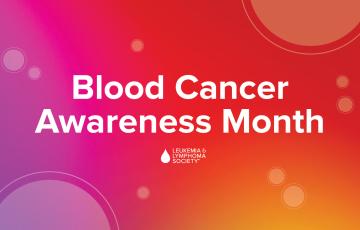Search Results
Lomustine
Lomustine is FDA approved as a secondary therapy in combination with other drugs to treat people with Hodgkin lymphoma who relapse while being treated with primary therapy or who fail to respond to primary therapy.
Nelarabine
Nelarabine is FDA approved to treat people who have relapsed or refractory T-cell acute lymphoblastic leukemia and T-cell lymphoblastic lymphoma following treatment with at least two chemotherapy regimens.
Nivolumab
Nivolumab is FDA approved for the treatment of patients with classical Hodgkin lymphoma that has relapsed or progressed after autologous hematopoietic stem cell transplantation (HSCT) and posttransplantation brentuximab vedotin.
This indication is approved under accelerated approval based on overall response rate. Continued approval for this indication may be contingent upon verification and description of clinical benefit in confirmatory trials.
Crizotinib
Crizotinib is FDA approved for the treatment of pediatric patients 1 year of age and older and young adults with relapsed or refractory, systemic anaplastic large cell lymphoma (ALCL) that is ALK-positive.
Limitations of Use: The safety and efficacy of Xalkori have not been established in older adults with relapsed or refractory, systemic ALK-positive ALCL.
Venetoclax
Venetoclax is FDA approved
- For the treatment of adult patients with chronic lymphocytic leukemia (CLL) or small lymphocytic lymphoma (SLL).
- In combination with azacitidine, or decitabine, or low-dose cytarabine for the treatment of newly-diagnosed acute myeloid leukemia (AML) in adults who are age 75 years or older, or who have comorbidities that preclude use of intensive induction chemotherapy.
Mosunetuzumab-axgb
Mosunetuzumab-axgb is indicated for the treatment of adult patients with relapsed or refractory follicular lymphoma after two or more lines of systemic therapy.
This indication is approved under accelerated approval based on response rate. Continued approval for this indication may be contingent upon verification and description of clinical benefit in a confirmatory trial(s).
Asparaginase erwinia chrysanthemi (recombinant)- rywn
Rylaze® is a component of a multi-agent chemotherapeutic regimen indicated for the treatment of acute lymphoblastic leukemia (ALL) and lymphoblastic lymphoma (LBL) in adult and pediatric patients 1 month or older who have developed hypersensitivity to E. coli-derived asparaginase.
Nutrition Advice from a Dietitian & Blood Cancer Survivor
76-year-old Barbara Borrell is a woman who wears many hats – a 50+ year registered dietitian, nutrition consultant and educator, cancer advocate, volunteer with The Leukemia & Lymphoma Society, and a blood cancer survivor who has battled not one, not two, but three types of blood cancer.
Cladribine
Cladribine is FDA approved to treat people who have active hairy cell leukemia. It is also used to treat some other types of leukemia and lymphoma.
Ifosfamide
Ifosfamide is an FDA-approved cancer therapy that is used to treat several types of cancer including acute lymphoblastic leukemia and non-Hodgkin lymphoma. It may cause temporary loss of hair in some people. After treatment has ended, normal hair growth should return.
Teniposide
Teniposide is FDA approved along with other medicines as induction therapy to treat people who have refractory childhood acute lymphoblastic leukemia, non-Hodgkin lymphoma and other types of cancer. This medicine often causes a temporary loss of hair. After treatment with teniposide has ended, normal hair growth should return.
Belinostat
Belinostat is FDA approved for the treatment of patients with relapsed or refractory peripheral T-cell lymphoma (PTCL).
3 Insights from a Clinical Trial Patient
The road to finding new and better cancer treatments often includes an important step: clinical trials. For patients with hard-to-treat diseases, these studies can be superhighways to the right treatment. A clinical trial can tell oncologists whether a new treatment works, how certain cancer types affect the body, and more.
A phase 1/2 study of DR-01, an anti-CD94 monoclonal antibody, in patients with large granular lymphocytic leukemia or cytotoxic lymphomas
In November 2022, LLS made an equity investment in Dren Bio to "Support Clinical Development of the DR-01 Program for Rare Leukemia & Lymphoma Indications Including Large Granular Lymphocyte Leukemia (LGLL) and Cytotoxic Lymphomas."
Champions in myeloma research: A conversation with Urvi A. Shah, M.D. M.S.
March is Myeloma Awareness Month, and it’s also Women’s History Month. So what better time to spotlight LLS-funded women scientists who are driving discovery for myeloma patients.
In this first of my two-part series on myeloma researchers, I sat down with Urvi A. Shah, MD, MS, an Assistant Attending in the Myeloma Service at Memorial Sloan Kettering Cancer Center.
Mechlorethamine
Mechlorethamine is FDA approved to treat people who have Hodgkin lymphoma, chronic myeloid leukemia, chronic lymphocytic leukemia, polycythemia vera and mycosis fungoides.
Vinblastine
Vinblastine is an FDA-approved chemotherapy agent that is used to treat people who have acute leukemia. It is sometimes used to treat other types of cancer including lymphoma.
Vorinostat
Vorinostat is FDA approved to treat cutaneous T-cell lymphoma (CTCL) in patients whose CTCL gets worse, does not go away or comes back after treatment with two systemic therapies.
